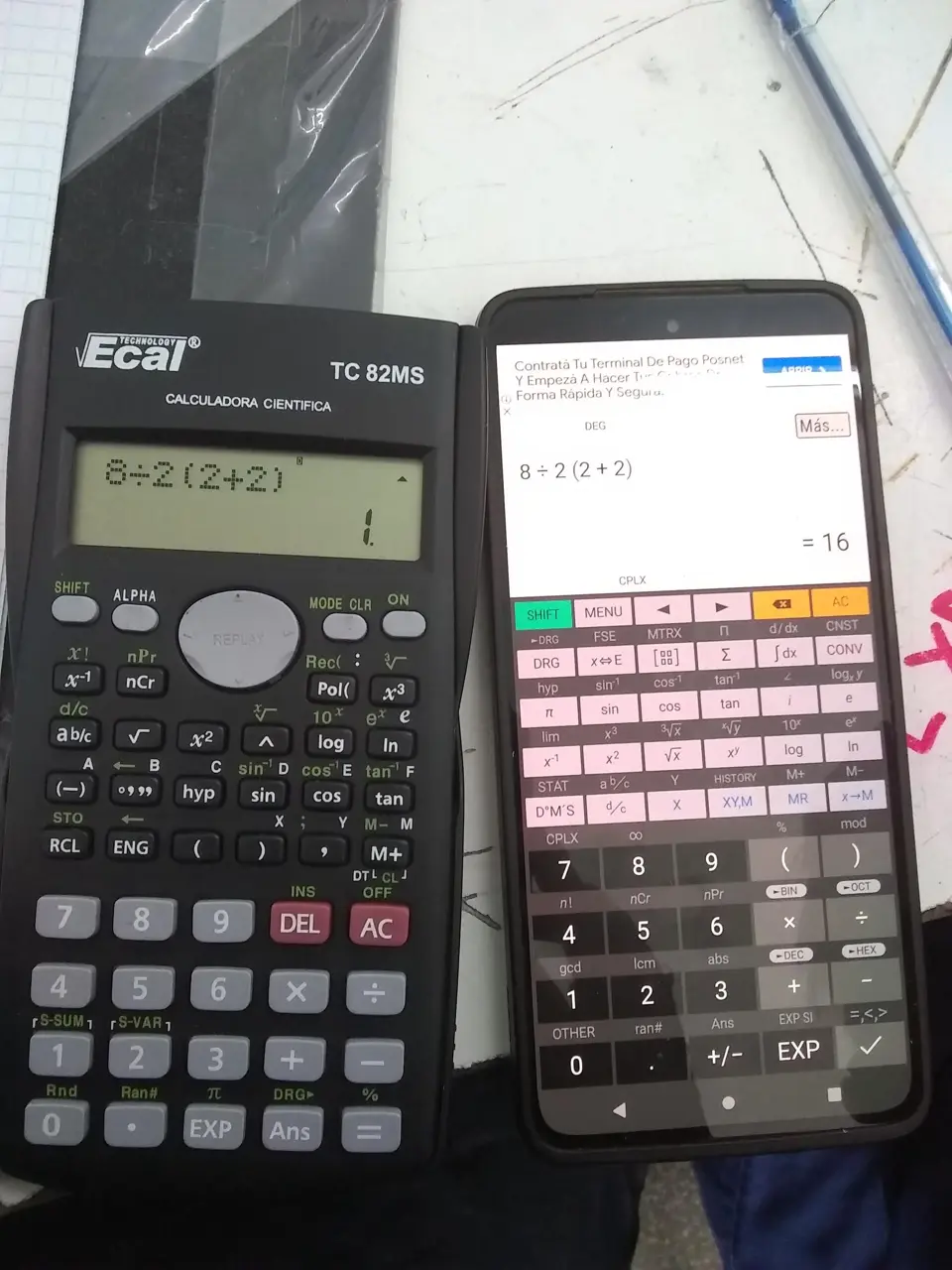this post was submitted on 03 Dec 2023
389 points (95.6% liked)
196
16915 readers
1935 users here now
Be sure to follow the rule before you head out.
Rule: You must post before you leave.
If you have any questions, feel free to contact us on our matrix channel.
founded 2 years ago
MODERATORS
you are viewing a single comment's thread
view the rest of the comments
view the rest of the comments

But 8/2(1+3) isn't a fraction. The / - the computing equivalent of ÷ (which can only be written using Unicode on a computer, so a bit of a pain to use compared to / )- is an operator, which means they're 2 separate terms. A fraction bar is a grouping symbol, which means it's 1 term. In this particular case it doesn't matter, but if it appeared in a bigger expression then it absolutely does matter. The way to write 8/2(1+3) as a fraction inline is to add extra brackets. i.e. (8/2(1+3)) - because brackets are also a grouping symbol.
Bu they're not, for the same reason. Firstly, the Distributive Law isn't multiplication at all - which only applies literally to multiplication symbols - it applies to bracketed terms (i.e. is a single term which needs to be distributed) - and secondly it applies to a single term, whereas multiplication applies to 2 terms (one before and one after). Anyone who talks about 2(1+3) needing to be "multiplied" has already made the mistake that is going to lead to a wrong answer (unless they just happen to "multiply" before they divide, which is an accidental way to get the right answer).
Indeed, that is the precise reason the Distributive Law exists - they are the opposite operation to each other! Anyone who adds a multiplication symbol has broken up the factorised term, again leading to the wrong answer.
Yeah, and that's all I was pointing out in the first place - please don't use "implicit multiplication". The term itself - i.e. it includes "multiplication" - leads people to do it wrong (because they treat it as multiplication, not brackets, then argue about the precedence of "multiplication"!). It needs to die!
Well that's why the rules of Terms ab=(axb) and The Distributive Law a(b+c)=(a*(b+c))=(ab+ac) exist to begin with - less brackets! :-) Imagine having to write a fraction as (1/(axb)) all the time!
Correct, though a lot of people treat it as the latter (yet another way to do it wrong - doing division before brackets) because they figure the 8/2 is "outside the brackets", but in fact only the 2 is, because the slash separates them as being 2 terms.